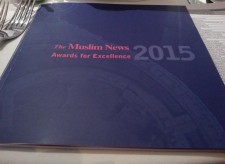(Photo credit: Steven Southworth/Pixabay)
The government has announced its new 3 tier system of coronavirus restrictions, with areas subjected to different levels of restrictions based on the number of Covid-19 cases. So far Liverpool, Merseyside and Lancashire have been placed in tier 3, classed as very high-risk, with curbs on mixing between different households both indoors and outdoors. Some businesses such as hospitality venues, gyms and leisure centres will also be forced to close.
Other areas that are on high alert and may yet move into the highest tier include Greater Manchester, although the Mayor of Manchester, Andy Burnham, has said they want further discussions before Westminster imposes any restrictions on the region without their consent.
It is hoped the new restrictions will slow the spread of the virus in these areas and prevent the need for another national lockdown, which could have devastating effects not just on the economy but on education and people’s mental health. But with virus cases rising steadily across the nation (and across Europe), it would seem the much predicted second wave is upon us and the threat to the NHS, in terms of being overrun by Covid-19 cases and rising death rates are looming over us once again, just as they were in March.
The first lockdown was successful in that it reduced the spread of the virus, prevented the NHS from being overrun and reduced deaths, although one can argue that locking down earlier and for longer would have saved more lives, but it was always inevitable that once people started to mingle again the virus would start spreading. Another crucial thing the lockdown gave us was time — time to get to know the virus better, how it spreads, its various symptoms, and how to treat them, develop therapies and a vaccine.
Doctors have indeed learnt a lot about the virus and thanks to their efforts the outcomes for those most affected by Covid-19 has improved, but there is still no cure nor vaccine. The lockdown gave us valuable time in which to develop a test and trace system, so we could identify cases, trace contacts and get them to isolate to curtail future outbreaks.
This was always going to be a major cornerstone of how we fight the pandemic and the government has pumped billions into the system, but a lot of this has been awarded to private-sector firms with very mixed results. Whilst testing capacity has increased it is still nowhere near the level and efficiency that is required to effectively manage the outbreaks across the country.
Over the past three months, there have been continual reports of issues with being able to get a test, results taking longer than 48 hours and failure to reach contacts quickly enough — figures for the week ending October 7 showed only 62.6% of close contacts were reached through the tracing system. The system is not robust and efficient enough to curtail the outbreaks we are seeing now. The long-awaited tracing App has been launched but as yet is still not proving to be the ‘world-beating’ system that was anticipated.
The government has a fine balancing act to perform trying to control the spread of Covid-19 without having to resort to another national lockdown. As the second wave hits, the northern parts of England have seen the higher number of cases; Merseyside, Lancashire and Yorkshire in particular. But cases are also rising in parts of the Midlands and recently London and Essex were moved from medium to high tier. Whilst local restrictions make sense, with areas of lower cases having more freedom to continue daily routines, keeping schools and businesses open, etc. the second wave is starting to take a different form than the first one.
In the first lockdown, we were ‘all in it together’; most of the UK was under the same restrictions. The changing rules imposed in different regions now means that millions of us will be living under harsher restrictions than others, often fuelling frustration and anger. Local leaders in the worst affected areas in the north have criticised the government’s handling of the pandemic, not being on top of the test and trace and accused them of a lack of consultation and support for the economic impact restrictions are having on their local economy and even accused the UK Government of sending diktats from London and a North South bias.
Many regions in the Northwest have been living under tighter restrictions than the rest of the country for months with cases still rising. Manchester Mayor, Andy Burnham, has been quite vocal and criticised the Government’s handling of the pandemic and said imposing tougher restrictions is “asking us to gamble our residents’ jobs, homes and businesses and a large chunk of our economy on a strategy that their own experts tell them might not work,” he told a press briefing on October 15.
Uncertainty over whether the government’s three-tier restrictions will be effective enough has led to calls from many political and health officials, including Sir Kier Starmer, Leader of the Labour Party, for a ‘circuit-breaker’ — a two-week national lockdown to coincide with half-term, that will reduce the spread and bring cases down.
Calls for a circuit-breaker are gaining support, but this will not solve the Covid-19 problem, merely kick the problem down the road a bit as cases will rise again afterwards. However, a circuit-breaker would slow the spread of the virus and reduce deaths and could buy a bit of time — but the country will want to know what can/will be done in that time to improve test, track and trace, so we can better manage future outbreaks. Otherwise, we could be locked in a cycle of repeated circuit-breakers, going in to and out of restrictions, until a therapy or reliable vaccine is found — and that could be months or years away.
In the meantime, the devolved governments of Wales, Scotland and Northern Ireland are taking the lead in their countries and imposing their own rules, there is no UK strategy. Northern Ireland has elected to go for a national circuit-breaker, seeing many businesses and hospitality venues closing and an extension of the half term for schools.
Wales is also considering a circuit-breaker over the half-term; in the meantime, the rules in Wales are constantly being updated as cases arise. In addition, the Welsh Government has expressed concerns that people from Covid-19 hotspots in the UK may travel into Wales, especially in half term, and have said they want a travel ban to prevent people entering the country from high-risk areas.
Given the border with England has no checkpoints, it is unclear how feasible this would be but the Welsh government says it is confident police can enforce the travel ban, although police say they lack the resources to do so.
Similarly, other parts of England that have lower cases, such as in the South West, have said they are concerned people may travel from hot spots to their region increasing their Covid-19 numbers. The government has advised against all but essential travel to and from high risk Covid-19 areas, but again the question is can this be enforced? Similarly, Scotland has imposed tougher restrictions in some regions, banning the mixing of households, forcing leisure and hospitality venues to close and limiting service to take-away or sit-down meals only.
The First Minister of Scotland, Nicola Sturgeon, is also considering a travel ban to Scotland from other parts of the UK. Whilst it may seem that the northern regions are worst affected at the moment, we should remember the virus holds no bias — it will spread whenever it can and if left unchecked numbers will rise across the whole UK.
To stop this, we do need to be ‘in it together’ and do our bit to prevent spread: reducing our contacts, avoiding unnecessary gatherings, isolating when required to, wearing a face mask and keeping 2 meters apart in public. We cannot assume because we feel fine we do not have the virus — testing is revealing many asymptomatic cases and people with very mild symptoms who may not even be aware they are infected. We all need to do our bit and hope the government can improve the test, track and trace system, especially as we move into the winter months and flu season.
Rachel Kayani

















